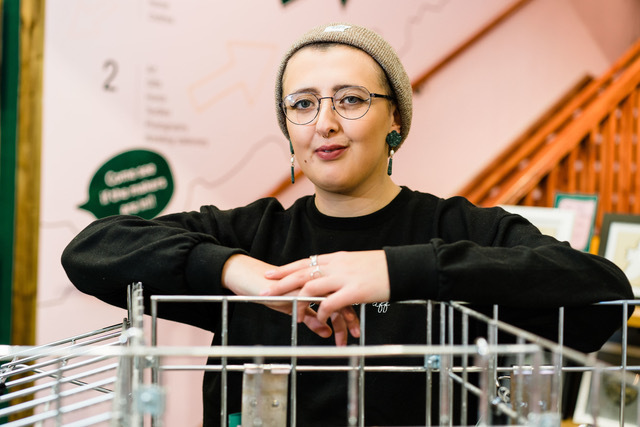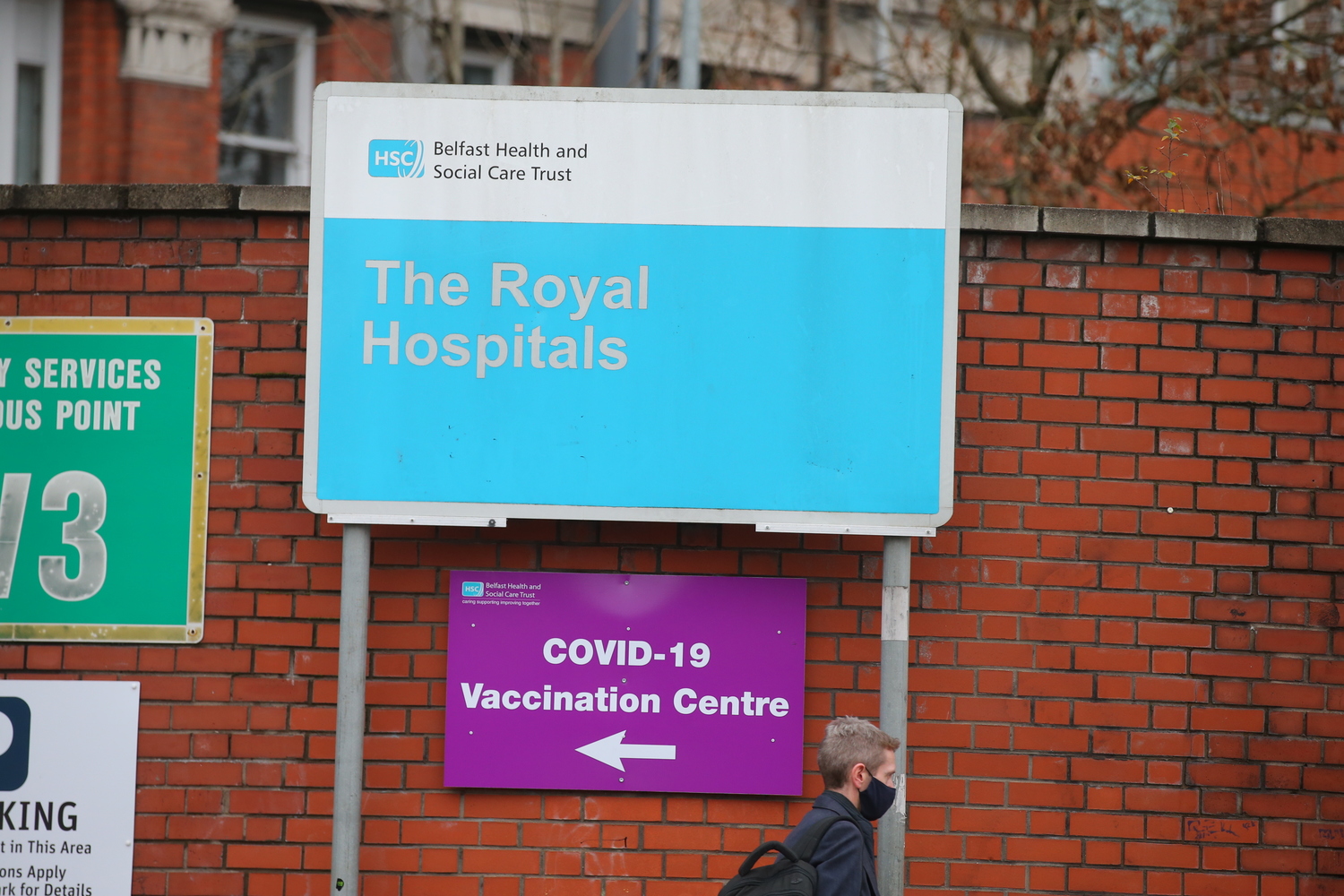
Dearbhail McNulty (25) was waiting for three-and-a-half years for a gynaecology appointment. Photo courtesy of Luke McCallum
WOMEN are being left with heavy bleeding and incontinence for years as gynaecology waiting lists in Northern Ireland soar.
The number of people waiting for an initial appointment with a gynaecologist has risen from 28,511 in 2019 to 35,573 last year, new figures from the Department of Health show.
A total of 15,915 patients have been waiting more than a year.
Dearbhail McNulty (25), from Banbridge, Co Down, told The Detail she had to wait for three-and-a-half years for her first appointment after experiencing abnormal bleeding in 2019.
“You are told to go to the doctor as soon as possible to prevent and catch things early,” she said.
“After a year and a half (on the list), I received a letter saying that my referral had been deprioritised. My GP was unable to explain why.
“Although I understand that there was a pandemic, I cannot help but wonder if this is just what the system is like.
“If the waiting time is three or four years, people are bound to die as a result.”
Ms McNulty eventually received treatment last year and has made a full recovery.
An external review of gynaecology services in the north is to begin this month.
Under Department of Health guidelines, by next month, “no patient should wait longer than fifty-two weeks for a first appointment”.
But the latest waiting list figures indicate the department’s target is unlikely to be met.
The data also shows that patients are facing a postcode lottery across the north.
Figures from last year show that more than 60% of gynaecology patients in the South Eastern Trust had been waiting for more than a year for a first appointment compared to just 7.3% in Belfast.
Waiting times have increased across many specialities because non-urgent care was postponed during the Covid pandemic.
As of December 2022, almost half of all patients who needed a first consultant-led outpatient appointment had been waiting for more than a year.
The Department of Health said that £92 million has been allocated to address prolonged waiting times.
But it warned more money is needed.
"The scale of the challenge means that, even with system improvements, there will be the need for extra investment if waiting times are to be reduced in a reasonable timeframe," a spokesman said.
Gynaecology waiting times have risen quicker than any other speciality.
Over the last year, the waiting list for an initial gynaecology appointment has grown by 6,463, compared to 5,842 for general surgery and 1,532 for a cardiology appointment.
Prolonged waits
Dr Hans Nagar, a consultant gynaecological surgeon and spokesman for the Royal College of Obstetricians and Gynaecologists, said lengthy waiting lists are affecting women’s health.
“These prolonged waits are leaving many women with debilitating symptoms, including chronic pain, heavy menstrual bleeding, and incontinence,” he said.
“Growing waiting lists are at the expense of women’s physical and mental wellbeing.
“We must ensure that women’s voices and needs are heard, and that the severe impact on quality of life is recognised. Reducing gynaecology waiting lists must be a priority.”
2021 research from the Northern Ireland Assembly found that the north is “lagging behind other UK regions and the Republic of Ireland with regard to funding and planning for women’s gynaecological health services”.
“The development of a comprehensive women’s health strategy would bring NI into line with other UK regions and could support much needed improvements to existing services,” the research found.
In January, an Assembly All-Party Group said the Department of Health needed to act on women’s health.
In a letter to the department, the group highlighted the need to cut waiting times, and called for mandatory menopause training for GPs and better education for young people on reproductive health.
The group has received no response to date.
Northern Ireland has had no functioning government since March 2022 amid a row over the Northern Ireland Protocol - a post-Brexit deal which has effectively created a customs border in the Irish Sea.
Chairwoman of the All-Party Group, Sinn Féin MLA Órlaithí Flynn, said the government must be restored to deal with issues, including women’s health.
“All parties agreed to make health a priority,” she said.
“I would urge the DUP to end its boycott now and get back to work with the rest of us so we can support these women.”
Alliance Party health spokeswoman, Paula Bradshaw MLA, said a Regional Women's Health facility should be established.
“In our view, gynaecology must be one of the specialisms,” she said.
“This should be accompanied by a Women's Health Strategy focused on delivering proper care pathways and support, including for those suffering from debilitating symptoms while awaiting diagnosis or treatment.”
The Department of Health has employed external consultants to review gynaecology services from this month.
A spokesman for the department said: “At present, the focus with gynaecology and other specialties remains on addressing the needs of red flag, urgent and cancer patients.”
“The department is aware of emerging recommendations across the UK for developing and improving services in this area and will monitor developments,” he said.
“Future service development would be subject to both funding availability and Ministerial approval.”
Maria Hassan is a freelance journalist
